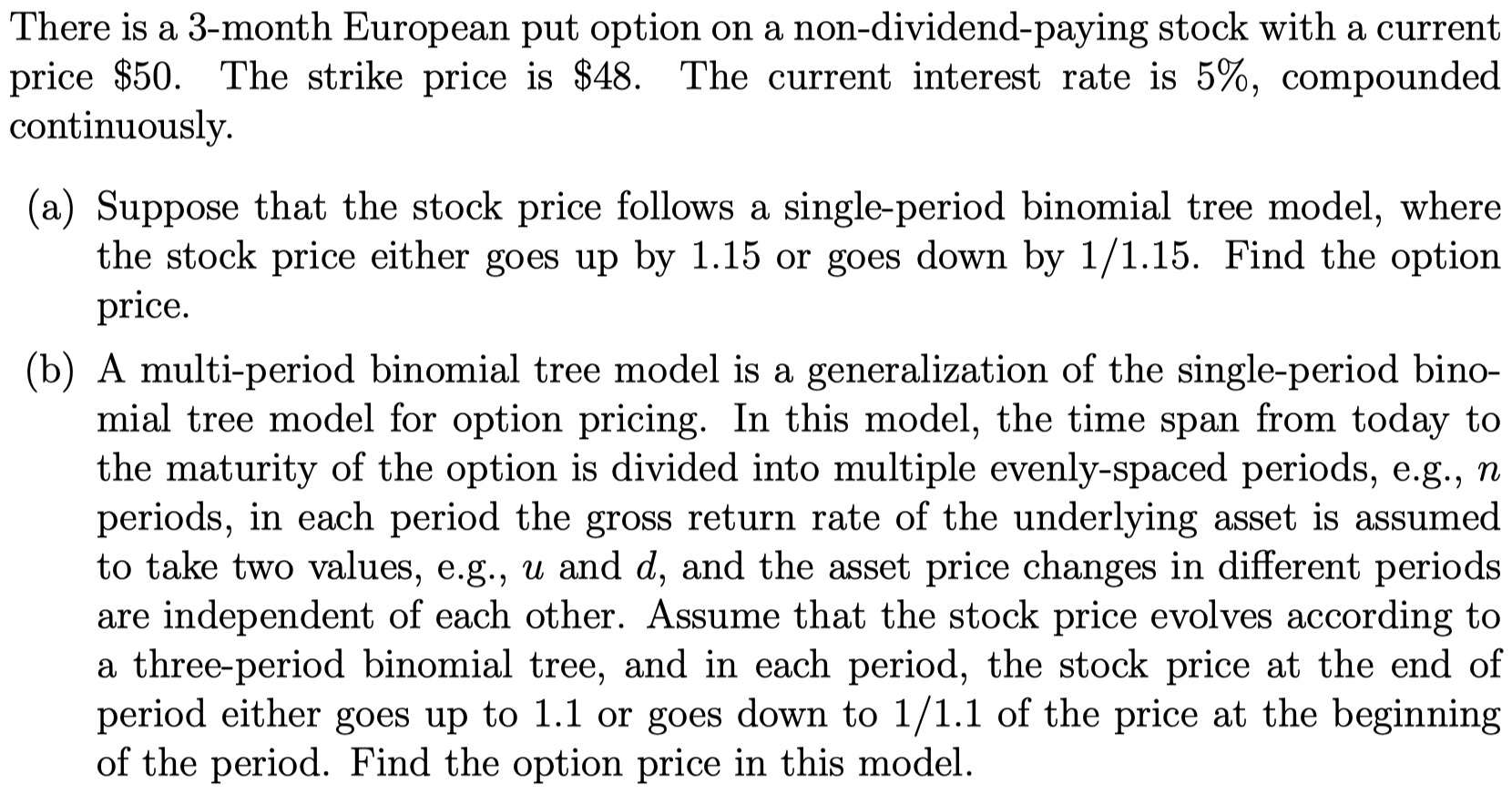Answered step by step
Verified Expert Solution
Question
1 Approved Answer
Please do Not use excel. I need numerical solution. There is a 3-month European put option on a non-dividend-paying stock with a current price $50.
Please do Not use excel. I need numerical solution.

Step by Step Solution
There are 3 Steps involved in it
Step: 1

Get Instant Access to Expert-Tailored Solutions
See step-by-step solutions with expert insights and AI powered tools for academic success
Step: 2

Step: 3

Ace Your Homework with AI
Get the answers you need in no time with our AI-driven, step-by-step assistance
Get Started


